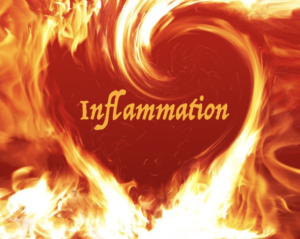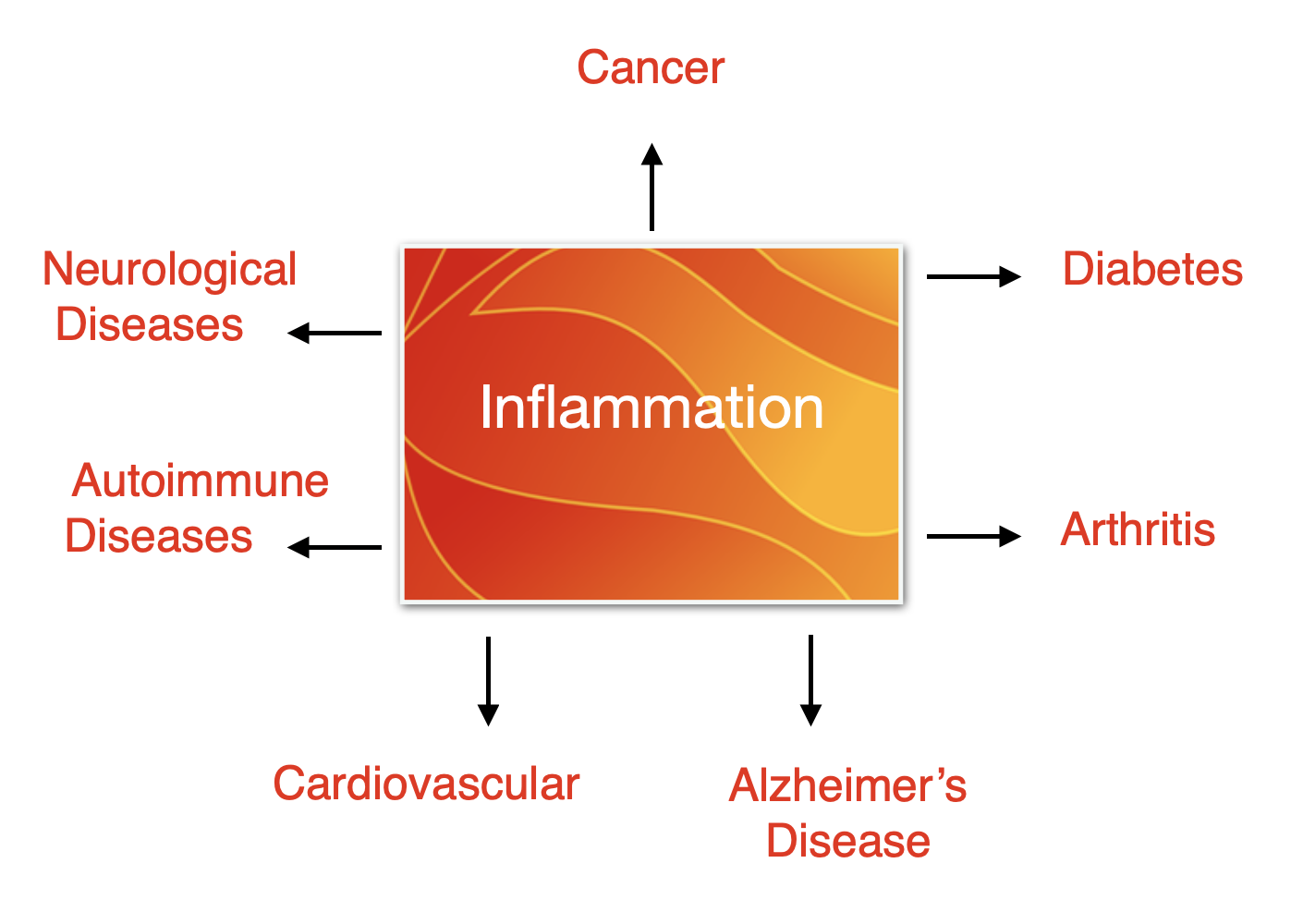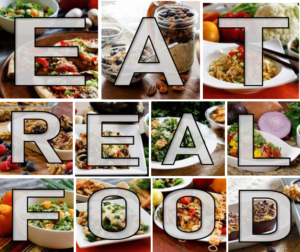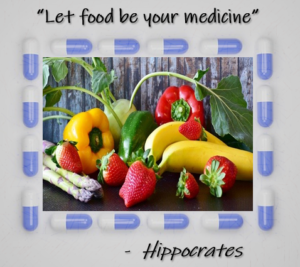 Are you confused about inflammation and how it affects your health?
Are you confused about inflammation and how it affects your health?
Is it good for you, or bad?
If you are confused, rest assured you’re not alone.
We want to help you understand what it is and how it might be affecting your health, or the health of your loved ones.
People sometimes comment on our before and after picture because they cannot believe the transformation…especially in my husband, Scott.
 But one comment recently from a very health-conscious friend stuck with me…she said:
But one comment recently from a very health-conscious friend stuck with me…she said:
“you both looked so inflamed.”
Now, we know we were unhealthy, and we knew we weighed more than we should, but I had never heard anyone describe us as “inflamed.”
Then, listening to a podcast a few weeks ago, I heard a doctor say…
“The average American is an inflammatory mess inside.”
I quickly wrote down the doctor’s words because they do a great job capturing an issue that significantly affects our health in this country.
So, what is inflammation and how does it affect our health?
Inflammation is actually a good thing…up to a point. When inflammation persists over months or even years, this is when it can become problematic…even deadly.
THE GOOD:
The inflammation that is good for us is often called acute or short-term inflammation. Think about a sprained ankle. You may notice redness or swelling for a few days. This is your body’s response to the injury and is an example of “good” inflammation. Typically, this inflammation goes away after a few days, having completed its healing mission!
THE BAD:
 The inflammation that causes problems is chronic, low-level inflammation.
The inflammation that causes problems is chronic, low-level inflammation.
It’s becoming more and more evident that this persistent inflammation plays a significant role in many diseases such as heart disease, cancer, diabetes, arthritis and Alzheimer’s, depression, among many others. Even conditions like chronic bronchitis and allergies can be caused or affected by ongoing inflammation.
Often, there are no symptoms of chronic inflammation…until one of these dreaded diseases shows up. That’s why it is so important to minimize (or ideally eliminate) it from our bodies.
What causes this “bad” inflammation?
You knew it was coming…the most significant factor is our diet. This will probably come as no surprise, but the most significant contributors include processed foods, sugar, refined flours, and certain fats (like trans-fats). You may remember our prior coaching tip on free radicals and antioxidants…the free radicals created when we are in oxidative debt (by not eating enough foods rich in antioxidants) is also known to cause inflammation in our bodies. Other lifestyle factors that contribute to inflammation include lack of exercise, stress and lack of sleep, among others.
How can you reduce inflammation?
Great news…you can “douse the flames of inflammation” through your food choices. And it’s not complicated…all you need to do is to eat a wide variety of smartly chosen REAL food!
 REAL foods that are particularly good at reducing chronic inflammation include:
REAL foods that are particularly good at reducing chronic inflammation include:
- Vegetables, especially dark leafy greens (both raw and cooked – every day!)
- Cabbage family “cruciferous” vegetables (at least one serving daily if you can!)
- Fruits, especially berries (eat daily or at least several times per week)
- Fish, especially cold water fish like salmon, as well as trout and sardines (eaten at least twice per week)
- Healthy fats, especially extra virgin olive oil
- Nuts and seeds (eat a handful daily)
- Whole grains
- Onions and garlic
- Avocados (aim for 1/2 daily)
- Watermelon (a super hydrating summer treat!)
- Herbs and spices – turmeric, ginger, cayenne, cinnamon, oregano, rosemary, and nutmeg are all good sources
- Cacao (especially raw cacao, cacao nibs – and dark chocolate with 70% or more cacao…and NOT processed with alkali)
If you remember our discussion on omega-6 vs. omega-3 fatty acids from our coaching tip on cooking oils, well, they are also very relevant to inflammation. Omega-6 fatty acids tend to promote inflammation while omega-3 are anti-inflammatory. Remember, processed foods are the main contributors to omega-6 intake and eating a wide variety of REAL food will automatically help you achieve the right balance.
Is milk inflammatory?
There is a lot of controversy on whether milk (and dairy generally) is inflammatory. This research study on milk and inflammation found that there can be inflammation in those with milk allergies, but this study did not find milk to cause inflammation.
In fact, for people who are not allergic to dairy products, dairy was found to be either neutral or anti-inflammatory, and the most significant anti-inflammatory effects were found in people with metabolic disorders. And just a reminder, it is best to choose skim milk and lower fat (minimally processed) dairy products (like nonfat plain Greek yogurt and part-skim Mozzarella cheese) to keep saturated fat intake down.
What about anti-inflammatory medicine?
 Yes, drugs like ibuprofen, aspirin or steroids (like prednisone) are anti-inflammatory. However, they also have side effects.
Yes, drugs like ibuprofen, aspirin or steroids (like prednisone) are anti-inflammatory. However, they also have side effects.
Medical professionals consistently say it is better…wherever possible…to manage your health through lifestyle choices (especially diet) instead of long-term use of medications.
Of course, there are some situations where medications are required, but it’s exciting to know that in many ways, food can be thy medicine!
So, is it possible that you or someone you know may be an inflammatory mess inside?
Don’t fret. Keep the list of anti-inflammatory foods found above on your fridge, and make them your focus. And know this: those foods that decrease inflammatory markers in the blood do so only when they are consumed several times per week. Consistency is key! This is EXACTLY why we are so committed to giving you weekly meal ideas and coaching tips that include ways to include these flame-dousing REAL FOODS in a variety of ways!
And, if you are concerned, there are tests doctors can perform to measure the degree of hidden inflammation in your body. This may be something to discuss with your doctor at your next checkup.
As we always say, keep it simple and EAT REAL!
 LEARN MORE ABOUT THE NAPKIN!
LEARN MORE ABOUT THE NAPKIN!
Great information. Thank you for timely and fact filled articles!
Thank you for the feedback – we are glad this was helpful!
This article really spells out why and how to reduce inflammation, something I’ve been working so hard on… and another reason why I love (and promote) your recipes!! So grateful these weekly tips!!
Jesica – We appreciate everything you do to support us – thank you!